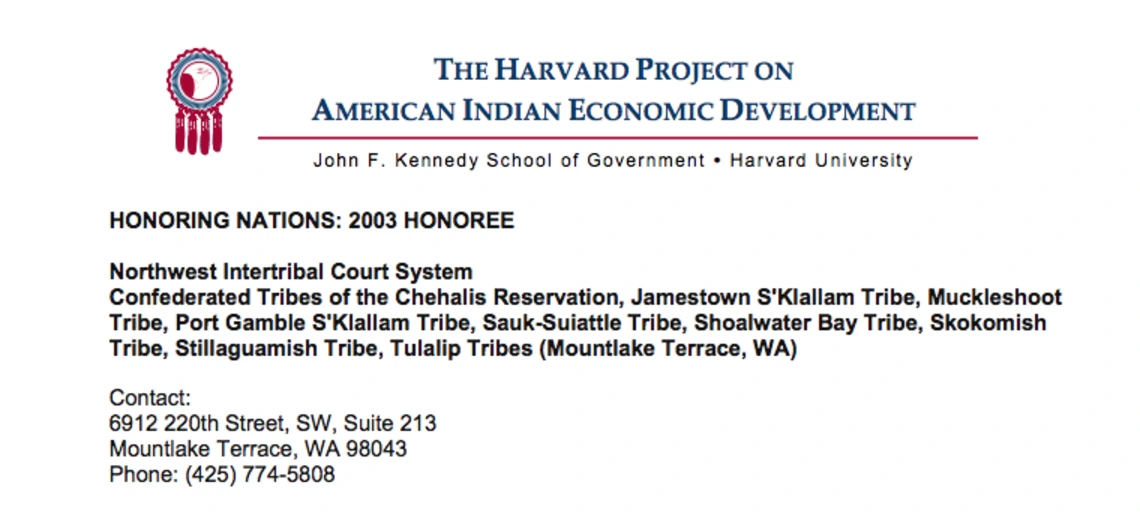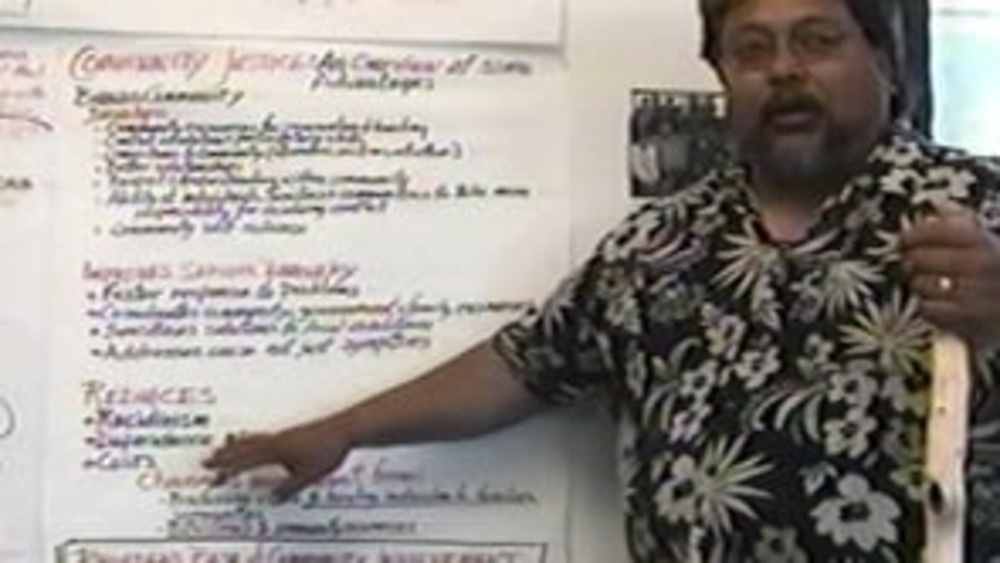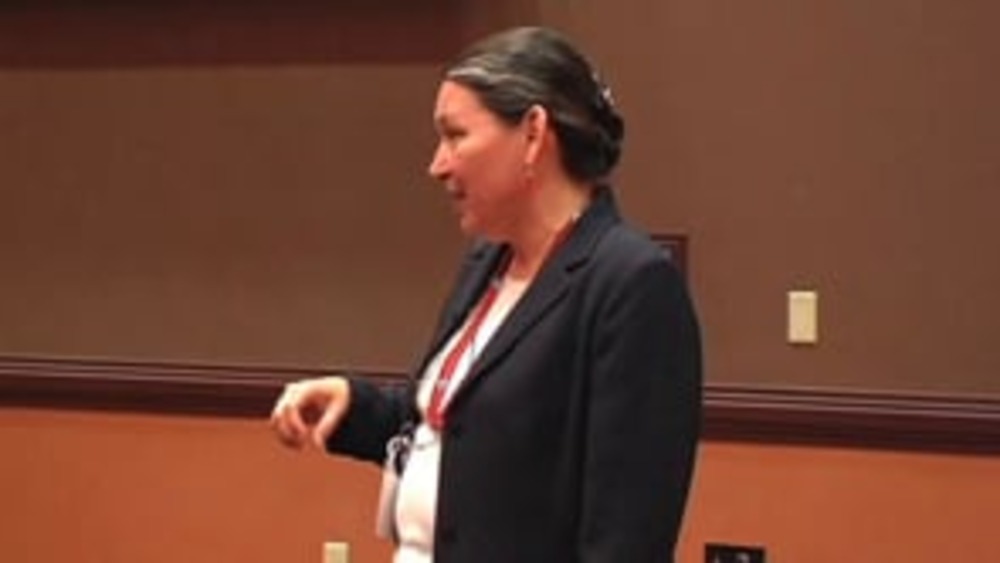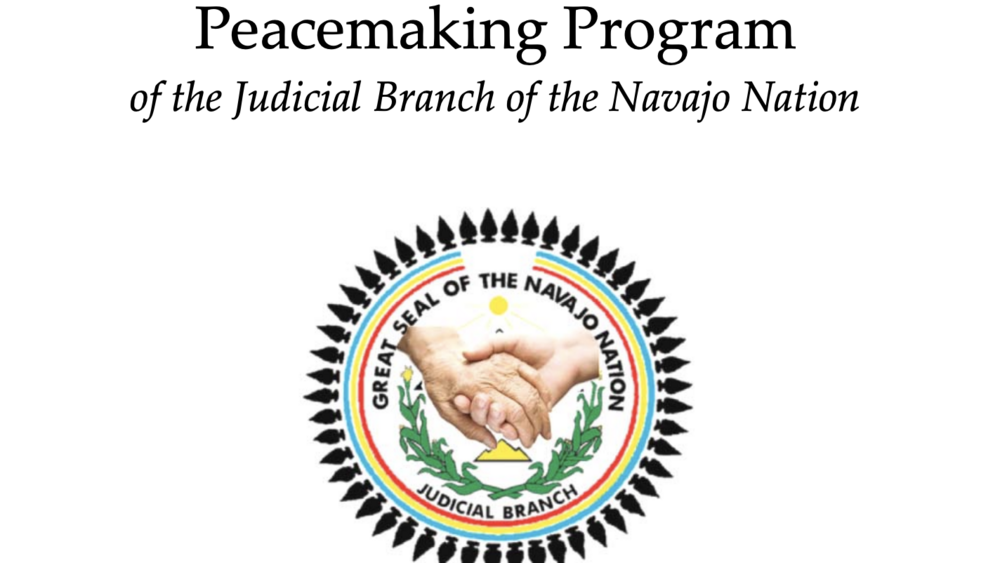The Northwest Intertribal Court System (NICS) assists tribes in developing tribal courts that provide fair, equitable, and uniform justice for all who fall within their jurisdiction. Owned by a consortium of tribes in Washington State, NICS recognizes the sovereignty, individual character, and unique needs of individual tribes. Its services, which include code writing and technical assistance, help Indian nations develop the necessary legal infrastructure for handling a full array of civil and criminal matters.
Additional Information
"Northwest Intertribal Court System." Honoring Nations: 2003 Honoree. Harvard Project on American Indian Economic Development, John F. Kennedy School of Government, Harvard University. Cambridge, Massachusetts. 2004. Report.




